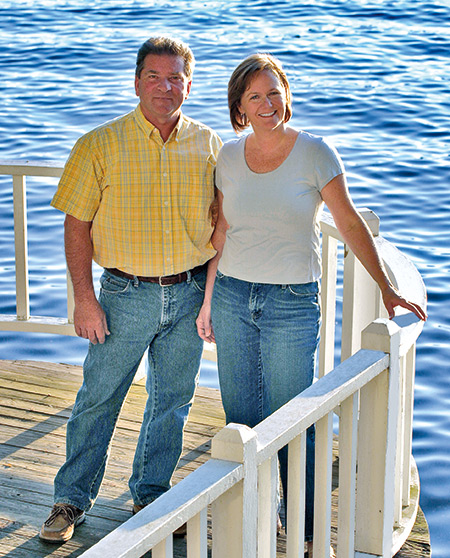Feb. 23, 2017
 A desire to relieve end-of-life pain first drew Annette Coleman into radiation therapy. Decades later, her desire for continuity of care is driving her donation to the ASRT Foundation to support the global outreach efforts of radiation therapists.
A desire to relieve end-of-life pain first drew Annette Coleman into radiation therapy. Decades later, her desire for continuity of care is driving her donation to the ASRT Foundation to support the global outreach efforts of radiation therapists.
“I want U.S. therapists to be leaders and have greater influence within and beyond our borders,” says Annette Coleman, M.A., R.T.(T). “Care is advanced through sharing our knowledge and experience.”
Annette believes that more radiation therapists should join the radiographers and sonographers participating through the ASRT Foundation in two-week volunteer efforts in countries like Haiti, Nicaragua and China.
Commitment to Education and Its Reach
Annette’s interest in palliative care motivated her to earn a bachelor’s degree in radiation therapy from the University of Oklahoma and a master’s degree in adult education from the University of Rhode Island.
Her interest in radiation therapy grew more from a wish to help patients relieve pain than from an interest in the sophisticated equipment. “I felt that palliative care was a place I could make a difference. It wasn’t the idea that I was going to save everybody’s life. I felt I could do something to address quality of life, to touch people at a difficult period that others often shy away from.”
As a radiation therapist at heart, Annette now applies the skills she learned while earning a bachelor’s degree in radiation therapy to her role as the manager of treatment delivery and charting product management for Elekta in Sunnyvale, California.
“I view myself as a radiation therapist even though I haven’t treated a patient in about 20 years. I continue to work in the field of radiation oncology. It remains my profession, one I have practiced in three very different environments. I’ve been fortunate, but my good fortune is not only based on luck. It takes effort to prepare for and capture opportunities. There are creative professional development options for radiation therapists.”
Annette’s view that integrating diverse experience with education improves lives evolved as she worked as a radiation therapist in Rhode Island before becoming the clinical coordinator for radiation therapy at the Massachusetts College of Pharmacy and the Joint Center for Radiation Therapy. She then served as a program director for the Massachusetts College of Pharmacy and Allied Health Sciences before transitioning into industry.
“It wasn’t until I worked in industry that I had the opportunity to interact with radiation therapists internationally,” Annette says. “Communicating globally with interdisciplinary radiation oncology teams is exhilarating.”
Globally Expanding the Community-based Camaraderie
As with many other donors and long-time volunteers for the Foundation, Annette was initially encouraged by a fellow R.T. to participate in the overall community effort to support the profession. “Carole Sullivan, my program director in therapy school, encouraged her students to become members of the ASRT. And she herself was always very active. She’s the one who planted the seed.”
Annette joined the Oklahoma Society of Radiologic Technologists, served as secretary of the College of Allied Health Student Council and maintains an ongoing membership in the New England Society of Radiation Therapists. Thirty years ago she started volunteering with the ASRT as an editorial review board member and continues to give back as a member of the Heath Care Industry Advisory Council and the ASRT Foundation Board of Trustees.
Working in industry has allowed Annette to take the patient care skills learned from years of working in a facility, along with her experience as an educational coordinator, manager and director, and apply that knowledge to global issues related to treatment and palliative care.
“I’ve been fascinated by the volunteerism of health care workers around the world, but while I could easily envision other professionals dropping into underserved or disaster regions, the tools of the radiation therapist are not so mobile. How could I — we — have a similar opportunity and make a similar impact? The ASRT Foundation has many tuition programs, money for research and funding for formal education. But the work we are doing with groups like RAD-AID International indicates how radiation therapist opportunities might evolve and grow over time,” says Annette.
Annette said that at first, she thought about endowing a scholarship or research grant through the ASRT Foundation Celebration Campaign, with both having value, but decided on outreach efforts based in part on a need for global education.
“I like the idea of growth through experience,” says Annette. “We give individuals here a new opportunity for exchange, a new way of developing their education and expanding their career. Through individual growth, our profession evolves and we improve the health of more people around the world.”